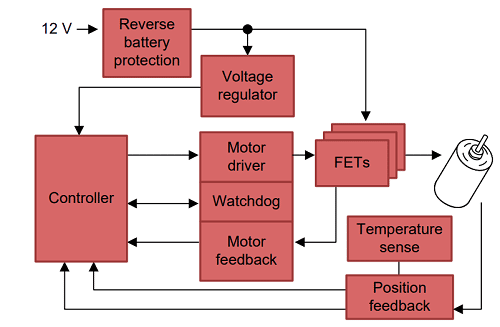Have you ever thought of enhancing the performance of your vehicle or adding a few additional features such as an HVAC blower, eTurbo, adding a power window, etc? For all these applications, you need a low-powered motor, so in this article, we will check the Texas Instruments 200W BLDC motor drive. The reference design simplifies the design complexity as it doesn’t require any position sensor such as a quadrature encoder or a hall effect sensor. This design includes an analogue circuit that works with a Microcontroller, a C2000 LaunchPad to control the speed of a 3-Phase BLDC motor.

The reference design is suitable for harsh automotive environments which is suitable for operation at a wide range of temperatures from –50°C to +150°C. The motor drive can work with a 12V battery and has a wide range of operating voltage from 4.4 V to 45 V. It is compatible with the existing MotorWare software thus further simplifying the development process and provides a 3.3-V supply for LaunchPad Operation
This low-cost and simple design also employs filtering and protection against reverse-polarity conditions on the input power. Furthermore, the reference design features an onboard temperature, voltage and current sense which allows adding fault-protection and diagnostics features easily to the motor drive.
Block diagram of the reference design is shown in the figure below:

The reference design uses a total of six n-channel MOSFETs, it employs three pairs, one for each of the three phases of the BLDC motor, and the large capacitors which supply the immediate bursts of current during each FET transition. While designing, the MOSFET Selection is critical for the motor drive stages and involves a trade-off between component size, on-state resistance, and gate capacitance or charge.
TI has released all the design resources necessary for building this project.
More details about this reference design can be found at https://www.ti.com/lit/pdf/tidubp9. Other resources provided by the company are listed below:








